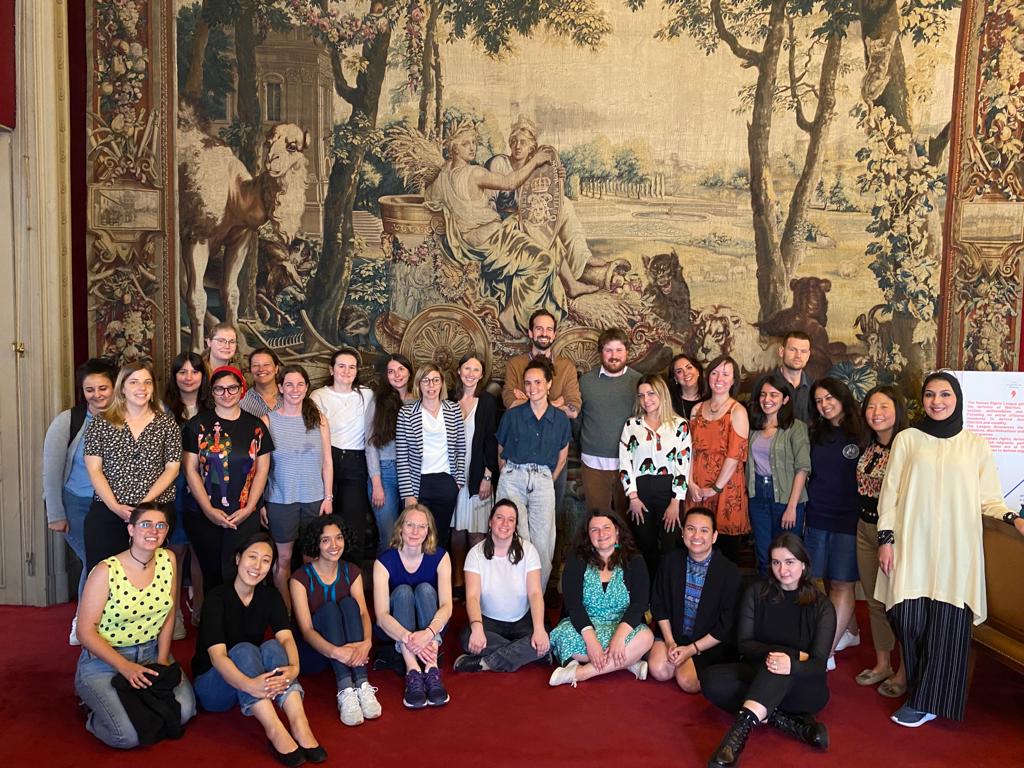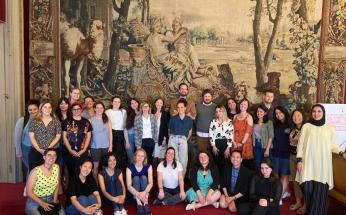Women on the Move’s first training school
Held in the magnificent Senate room of Université Paris Cité, WEMov’s first training school took place on 7-10 June 2022 and gathered Master’s and PhD students from over 20 different nationalities, all willing to learn more about women’s migration across Europe.
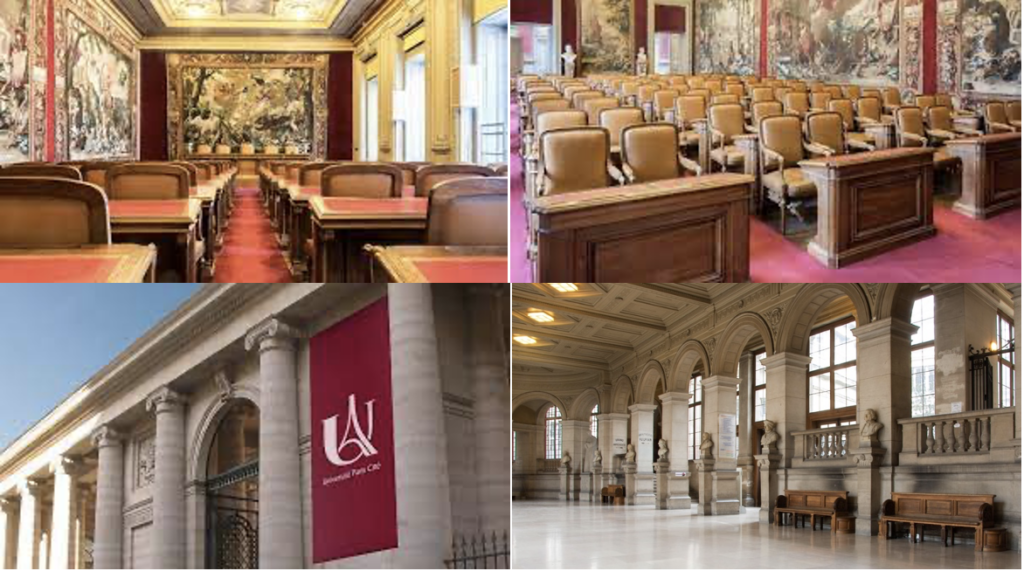
On 7 June, after a welcome address and trainers’ introduction, the students were offered a fascinating opening lecture by co-organiser Justyna Bell on “The transformative potential of migration: Polish women migrants’ everyday life experience in Belfast, Northern Ireland” which led to enthusiastic discussions. The afternoon was marked by the first classes and field trips. Students discovered the Museum of Immigration’s latest exhibition, and were allowed backstage in the National Archives and the Kandinsky Library. All our thanks to our hosts for allowing us in their archives, remarkable places of knowledge.
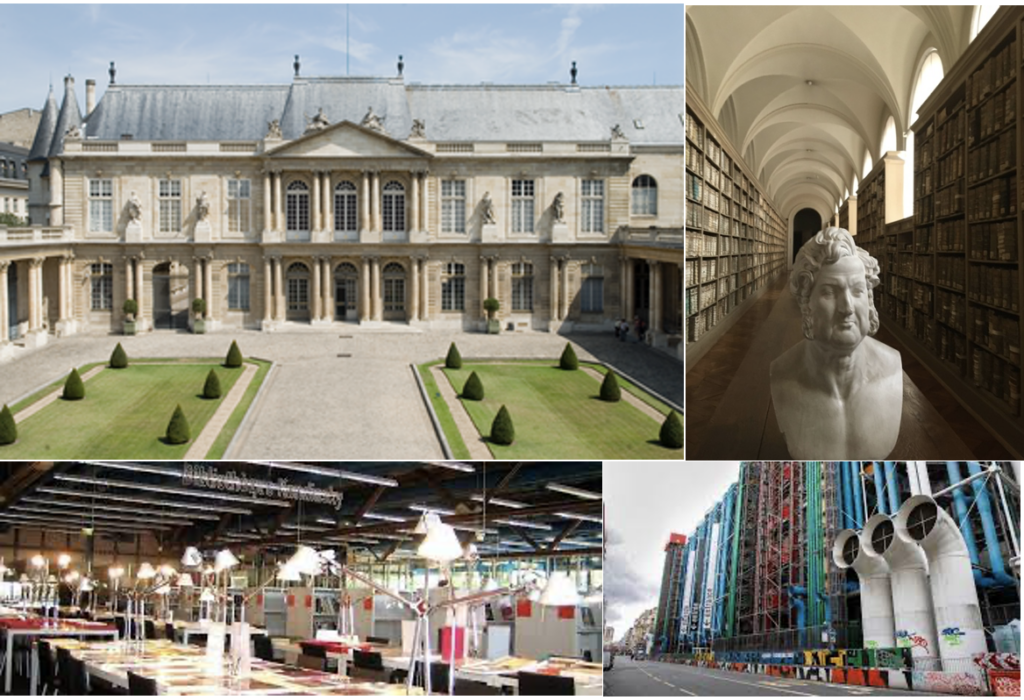
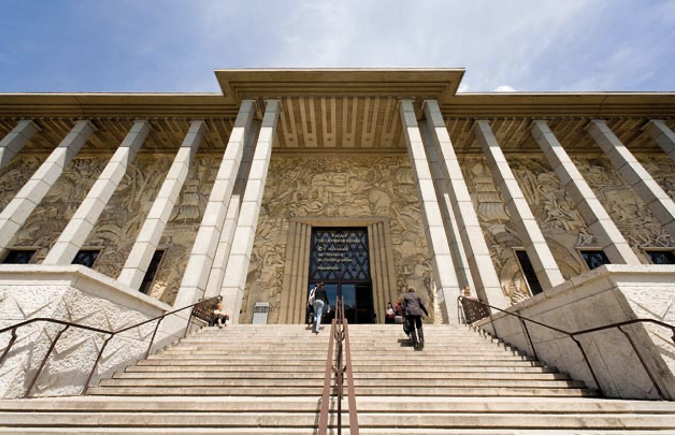
Group dinner concluded this very busy first day.
The second day started with co-organiser Marko Lovec’s keynote talk on “Gender perspective on the EU’s migration policy” which clarified the EU migration legislation for the students, eager to know more about the topic. A compelling meeting with local organisations was held in the afternoon during an informal “Open Café” with local NGOs and institutions RAJFIRE/La Maison des Femmes, France Terre d’Asile, the Ligue des Droits de l’Homme, and the Commission Nationale Consultative des Droits de l’Homme. The students freely walked from one stand to the next and engaged in lively discussions with our guests to learn more about women’s migration in France. The ensuing round table was the perfect occasion to discuss the links between advocacy and service.
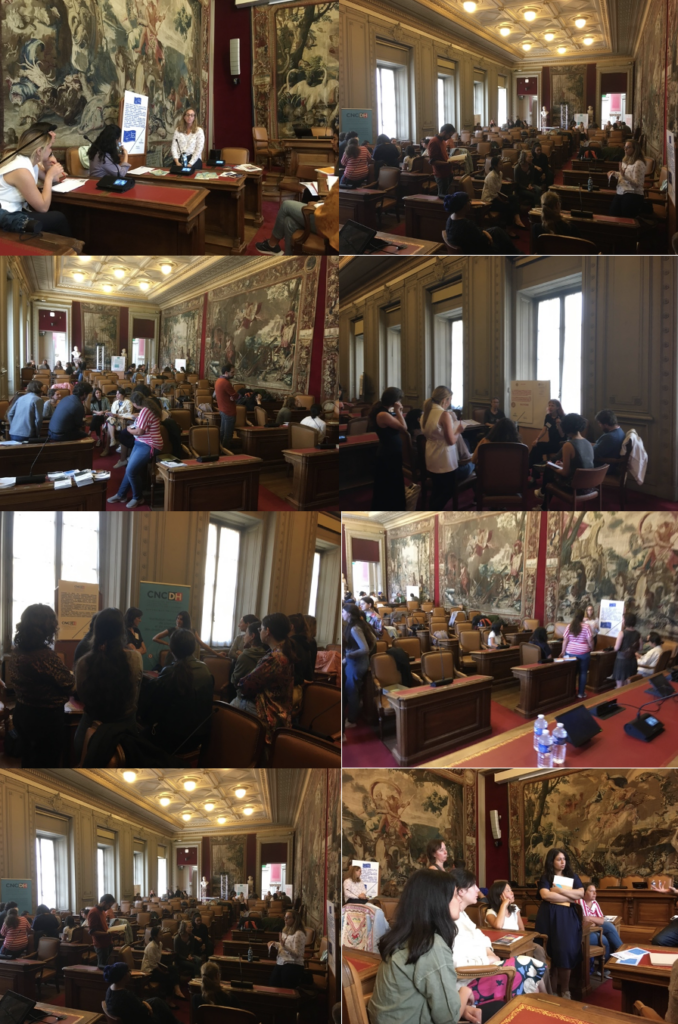
A boat trip on the Seine river concluded the second day of WEMov’s training school.
The third day opened with Nancy Green’s keynote entitled “Women’s Migration History in Gendered Times”, which offered the students a compelling perspective on the historiography of women’s migration as well as the evolution of key theories and methods in women’s migration study. After classes, a grant writing session was offered to PhD students by co-organisers Justyna Bell, Marko Lovec and Marie Ruiz. The students worked in groups on the “Impact” section of an ERC Starting grant application.
Day three ended with a picnic by the Eiffel Tower, an occasion to create lasting bonds between participants in a friendly manner.
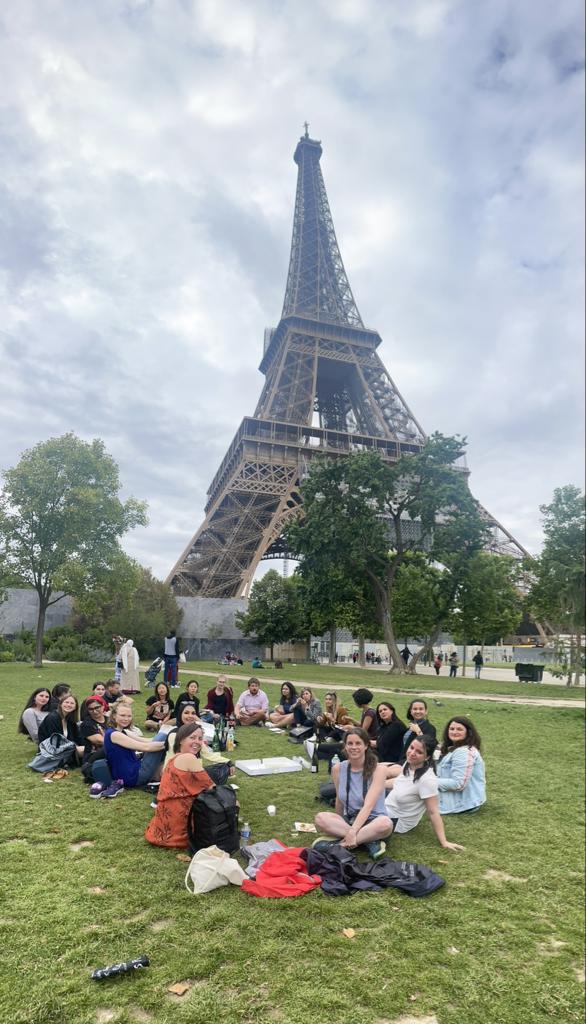
Day four was the last day of classes for the students. Starting with a final keynote by co-organiser Marie Ruiz entitled “Colonial Training Centers for British Migrants to the British Empire : a Gender Perspective”, students took their last classes. Varied, they offered the students qualitative, quantitative and technical skills with such topics as “finding migrant women in the archives”, “creating databases” or “interview and oral history” for Master’s students. The PhD students were taught “text analysis from interview”, “queering research methods”, “visualization with Python programming”, and “narrative and discursive strategies”.
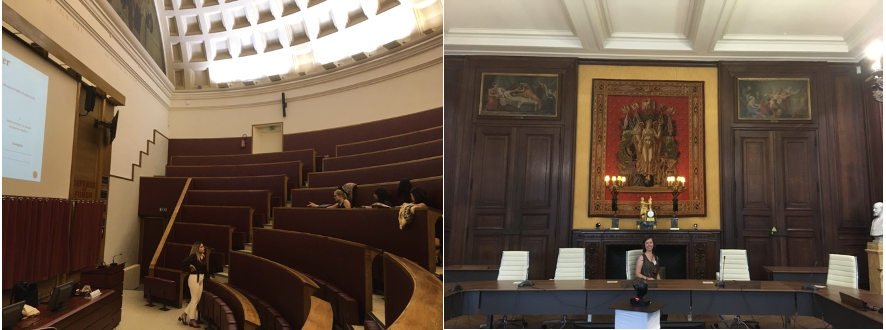
Over the week, students worked in groups towards their final tasks which were presented on the last afternoon. Justyna Bell tutored a group on finding migrant women archives and milestones; Joana Pujadas Mora’s group showed how they managed to create a database, and Alexandra Yingst’s group created a short film about interviews and oral histories through a feminist lens. PhD students led by Stellamarina Donato showed how to evaluate an interview in ATLAS.ti using a text analysis approach; Uzma Rashid led her group to create a data collection instrument with a gender lens; Julia Stryker’s group presented a ‘methods’ section using Python programming for a hypothetical project, and Fabrice Langrognet’s group presented a narrative-based story of female migrants
After the certificate completion awards, all gathered for the final cocktail, which ended the Training school in a friendly and pleasant manner.
